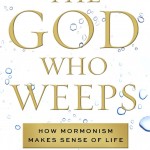Thanks to everyone who weighed in on last week’s Santa Claus debate. I was very amused by how many other people had also tried to test Santa’s existence as children. As always, if you’d like to respond to a Monday Call to Arms in longer form as a guest blogger, please email me at leah (dot) libresco (at) yale (dot) edu.
The debate over whether Christians should pray for Christopher Hitchens in his fight against cancer has been raging across the blogosphere. Prayers seem to fall into two categories: prayers for his recovery from cancer and prayers for his recovery from atheism, and everybody wants to know what atheists make of the whole business.
I had a personal encounter with this question, when I once found out a conservative Christian friend occasionally prayed for me to cease to be bisexual. I was a little discomfited, and joked about getting my more theologically liberal friends to counter-pray to balance out her efforts. Ultimately, of course, I did nothing of the kind, since I don’t believe that prayer does anything.
It makes no sense for atheists to be intimidated by rituals we believe are empty. The ridiculous debaptisms conducted by an atheist provocateur only bolster the other side. You can only profane something you believe to be holy. When atheists embrace blasphemy for the sake of blasphemy, it merely reinforces the idea that whatever we are mocking is something truly powerful.
This is why I remain baffled by the behavior of everyone in what must be one of the most theologically bizarre conflicts of the 20th century: the controversy over Mormons baptizing Holocaust victims in absentia. Do Jews believe the baptisms will take? The only danger seems to be that the Mormon Church’s bizarre practice of baptism by proxy will continue to be held up to ridicule, possibly further damaging Mitt Romney’s 2012 chances. This is a concern for Romney, not the Jews.
Look at it the other way. If a Wiccan friend told me that she planned to put a hex on me, I wouldn’t start stocking up on rock salt and other forms of magical protection. I don’t believe she can make good on her threat, so I don’t need to be worried about the consequences of her magical actions. What does worry me is the attitude that this threat reveals. Whether or not my friend has a connection to the Lord and Lady, it’s clear she has a problem with me that needs to be patched up.
The same goes for concern expressed through prayer. My boyfriend, unsurprisingly, prays for my conversion, as well as strength for me whenever I’m going through tough times. As I would in the Wiccan case above, I take his actions as they are meant– an expression of love.
The only reason I am ever put off by prayer is if it is taken as a substitute for action. Prayers for the poor ought to be coupled with donations to charitable organizations or political advocacy groups pushing for necessary reforms. If prayer is viewed as sufficient in itself, it is an analgesic numbing us to our own ability to act and do good.
Are other atheists in agreement?
How do you react when someone says they will pray for you?
Does a simple ‘thank you’ for their intentions connote tacit approval of their faith?
How should people of all beliefs work to avoid accepting prayer as a substitute for other action?
One final note: for me, the strangest thing about Mormon proxy baptism has always been the way it completely subverts Pascal’s Wager. Mormonism is the one religion you absolutely shouldn’t bet on, since you can always course-correct after death. The whole practice seems demeaning to the practice of Mormonism on Earth. Any thoughts?











